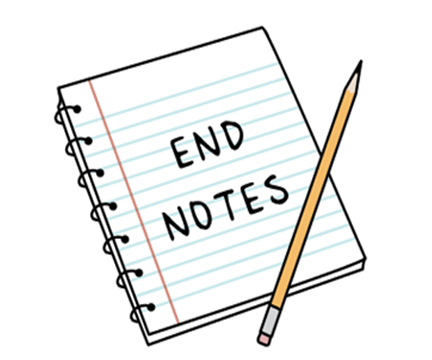Author & Thought Leader Karen Dillon on toxic
coworkers, political angst, and the psychology
behind consumerism
When Karen Dillon speaks, you should definitely listen. As longtime editor of the Harvard Business Review, she created their Guide to Office Politics, which is a must-read for anyone with a 9-5 gig. She’s a go-to co-author of several best-selling marketing and business-minded books like Competing Against Luck, co-written with one of our favorite innovation experts, Clayton Christensen. Oh, and did we mention she was recently named one of the Top 40 Influencers of 2016 by Product Management Year in Review? Yep, she’s the real deal, and we couldn’t wait to get her expert take on the following five (ish) burning questions we’ve had on our minds lately. Read on to get her thoughtful responses, plus learn why she owns way too many pairs of black pants.
1.
Can you explain your “Job to Be Done” principle and how it would relate to the fashion or beauty industry? In addition, how would a fashion brand retain customers to keep “hiring” them for the “job” at hand?
Karen Dillon: Let’s start with asking, who are you really competing with? I’m guessing that both the fashion and beauty industries are not just competing against other fashion and beauty companies. Are people buying those products or strolling into those stores because they want new clothes or makeup? Or is it to accomplish something else? I can think of lots of instances when I’ve made a purchase that had nothing to do with needing that product, but everything to do with the way I was feeling or some social event I had coming up. Do you know how many pairs of black pants I have in my closet? I don’t think all of those purchases were about needing more black pants. Something else was going on. We say in our book, Competing Against Luck, that until you understand why people make the choices they do, you can’t innovate successfully. Consumers don’t buy products—we believe that what’s going on is that they actually hire them to do something for them. We call this a “Job to Be Done.” What we mean by this is that a decision to buy something is seldom about the function of the product like: ‘’I want new makeup because I need to cover my blemishes.” Instead, people “hire” makeup to do a job for them. Something far more complex is going on that involves emotional and social dimensions, too. Until you understand what the job is, in all its dimensions, you probably won’t successfully innovate or retain customers.
“Consumers don’t buy products – we believe that what’s going on is that they actually hire them to do something for them.”
2.
“Femvertising” is queen right now, with girl power at the forefront of most marketing and advertising campaigns. If you had a crystal ball, could you predict other major themes that we’ll see in 2018?
KD: I can’t help but think that this national level of stress, depression, and anger will drive people to seek solutions for relaxing, destressing, and reconnecting with people. I hope that’s true, anyway. How many people have gotten angry just scanning their Facebook updates? How many people have opted to stop talking to family members? How many of us have categorized our friends or colleagues into black and white, ‘’good’’ and ‘’bad’’ categories? I hope this year of anger gives way to a year of taking care of our mind and spirit – and being open to new points of view. It’s exhausting being angry all the time.
3.
The current political atmosphere is tense at best, and the mood of the world seems to have changed—and gotten heavier—overnight. With such weighty political issues in the forefront of everyone’s minds, how can people manage their time and energies at work and at home?
KD: Sadly, that’s so true. Realize that the "loser" in these scenarios is the person who can’t stop thinking about the slights at work or the problems of the world. We wake up thinking about these things, we head into work angry, we’re pissed off about the morning’s news, and so on. That is just draining. Nobody thrives in those conditions. It’s not that you can’t care about these issues, but you can’t let them dominate your thoughts – or your energy. Find ways to put political or external issues in a mental parking lot, both at work and at home. Be present in the moment. If you need a place to vent, choose a trusted friend or colleague—but make sure whatever you’re saying, however angry or frustrated you might be—won’t come back to haunt you. I used to tell people, even when you’re speaking privately to a colleague, imagine what it would look like if that conversation ended up on YouTube. You can have a point of view, express frustrations, but don’t lose your dignity or class in the moment. Beyond that, make sure you take care of yourself. Eat well. Make sleep a priority. Get exercise. It sounds so basic, but those are so often the first things to go when we’re in stressful periods of our lives. And the consequences of letting those go are profound. There’s a great article in HBR by Tony Schwartz, called Manage Your Energy, Not Your Time. I recommend that to everyone.
4.
Let’s say a direct report thinks they know better than you, and aren’t afraid to be loud about it, thereby undermining your authority and position. How do you navigate this situation?
KD: My advice is to talk to the person, privately, to try to get on top of the situation. You definitely can’t let them continue to undermine you publicly—or even privately. It’s not unheard of for a malcontent direct report (or even just a well-meaning, but loud one) to try to go around you to get his or her ideas heard by people higher up the food chain. You have to get on top of that. Assuming that the person is well-intentioned, you can try to channel that good energy more appropriately. Ask him or her to meet with you in advance of key meetings to share his or her ideas. Put him in charge of an aspect of a project and then give him a chance to ‘own’ that and shine in public ways – but always after updating and sharing with you. Most people speak out in this way because they don’t feel they’re being heard. Make sure they are – know they are. If it turns out that someone is actually trying to undermine you, then you have to cut it off at the pass. Meet with him or her privately. Discuss what behavior you’ve observed—be specific—and why you don’t want to see that continue. Give him a chance to recognize what he’s doing (it’s possible he doesn’t realize he’s doing it) and try to change it. A lot of bullies don’t like being called out. This may be enough to either quiet him or nudge him to make a different job choice.
“I can’t help but think that this national level of stress, depression, and anger will drive people to seek solutions for relaxing, destressing, and reconnecting with people.”
5.
What if you experience a form of PTSD after having a negative work experience with bullies and backstabbers? How do you move on and have faith or gain the skills to navigate a similar situation if one arises?
KD: So many people have felt traumatized by bad work experiences like this. Recognize that you’re not alone. People even consider quitting their jobs rather than deal with the stress of a bully or backstabber at work. If you walk away from a job that otherwise makes you happy because of a bully, the bully has won. But they also win if you’re in a kind of PTSD situation and don’t reset yourself to move past it. Assuming the bully is no longer in your professional life, remind yourself that MOST people aren’t out to get you. Lots of people are unintentionally aggressive, or just thoughtless. It’s even possible you’re just hypersensitive. But start by reminding yourself that most people have good intentions. Start by giving everyone you are working with the benefit of the doubt. And then actually work to build relationships with the people around you. That can involve something as simple as finding common interests to chat about at the water cooler. Are you both movie buffs? Are you a foodie? It’s much harder to be a jerk to someone you actually like. And beyond that, if you start by trying to be a good colleague yourself -- taking an interest in their work, volunteering now and then to help them, being engaged when they’re sharing something, and so on -- you’re likely to find people reciprocating.
Ok, we just had to ask...
What was your key learning experience about yourself in your collaboration with Clayton Christensen?
KD: It was such a terrific experience collaborating with one of the world’s most respected thinkers—it’s hard to isolate one thing. One thing I learned from him, that I have in turn tried to improve in my own life, is how he truly listens to those he’s working with, tries to learn from them, and is actually eager to challenge his own thinking. He doesn’t want people to rubber stamp his ideas; he wants people to help make his ideas better by poking and prodding. I think it’s all too easy to just want to surround ourselves with like-minded people. I think we grow—and I did—by being around people who push us to be better.
Lucky us: Karen's on Twitter.
Karen's three favorite books of all time are: Song of Solomon by Toni Morrison, Pride and Prejudice by Jane Austin, and The Kite Runner by Khaled Hosseini.
Politics are a trigger, it's a fact.
Speaking of loyalty, it starts at the top.
UP NEXT: AMY HERMAN





